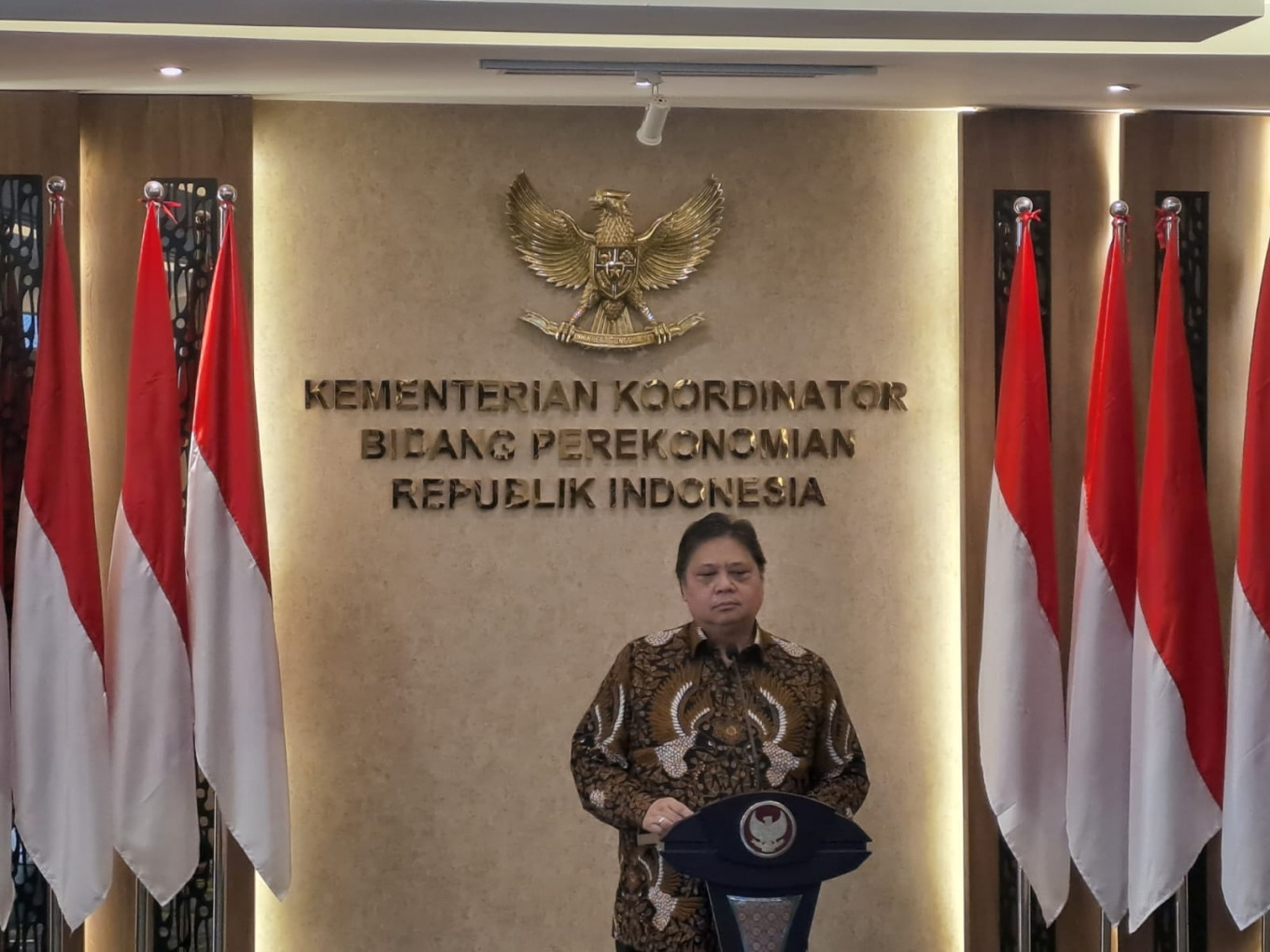Popular Reads
Top Results
Can't find what you're looking for?
View all search resultsPopular Reads
Top Results
Can't find what you're looking for?
View all search resultsGDP beats estimates as growth holds above 5 percent
Change text size
Gift Premium Articles
to Anyone
I
ndonesia’s economy is showing resilience in a turbulent global environment as first-quarter growth came in slightly higher than many had expected.
As Statistics Indonesia (BPS) announced on Friday, the country’s gross domestic product (GDP) was up 5.03 percent year-on-year (yoy) in the January-through-March period, marking a marginal acceleration from the 5.01 percent annual gain registered in the preceding quarter.
However, economic output looked less impressive from a quarterly perspective, as the GDP figure dropped 0.92 percent quarter-to-quarter (qtq). This marks a slowdown from quarterly gains of 0.36 percent in the fourth quarter of last year and 1.83 percent before that.
Coordinating Economic Minister Airlangga Hartarto said on Friday that “the national prospects are still strong” as seen in the purchasing managers index (PMI), the trade balance and the debt-to-GDP ratio.
He expressed optimism that Indonesia could reach the 5.3 percent economic growth target by the end of this year and claimed that the country had “recovered faster than everyone else”.
“This is all thanks to the structural reforms,” said Airlangga.
The country’s GDP growth rate has held above 5 percent for six quarters in a row, and the latest reading beats a consensus estimate of 4.97 percent yoy. Consumer spending accounted for 2.44 percentage points of the 5.03 percent GDP growth, followed by net exports with 2.1 percent.
The BPS data revealed that economic output grew in all business sectors on an annual basis, with the transportation and warehousing category seeing the strongest gain at 15.93 percent yoy, thanks to a massive upsurge in expenditure on rail and air traffic.
This was followed by accommodation and food and beverages, which grew 11.55 percent yoy.
BPS official Edy Mahmud said the commodity sector, which includes palm oil, nickel, coal, crude oil and natural gas, was on a downward trend in terms of value, despite volumes being up, and this affected the overall economy.
“Nevertheless, if we take a look at our trade balance throughout the first quarter, […] there was a surplus,” said Edy on Friday, noting that Indonesia had now recorded a positive trade balance, which refers to exports exceeding imports, for 35 consecutive months.
Bank Mandiri economist Faisal Rachman said the source of Indonesia’s 2023 economic growth “will most likely shift from external to domestic” due to weakening export activities amid a global economic slowdown.
“However, China's economic reopening could support external demand to some degree. Commodity prices are prone to continue weakening, albeit in a more gradual manner,” Faisal said on Friday.
On Tuesday, BPS revealed that inflation slowed down to 4.33 percent in April from 4.97 percent registered in March, despite the consumer price index (CPI) commonly jumping in Ramadan as demand soars.
Read also: Inflation slows further, dropping to 4.33% in April
Before that, the rate had been consistently sitting above 5 percent since September, when an increase in government-controlled fuel prices drove the CPI growth to 5.95 percent, the highest level since October 2015.
Core inflation, which has become the de-facto basis for Bank Indonesia’s (BI) interest rate policy, eased to 2.83 percent in April, the lowest since June 2022 and down from 2.97 percent a month previously.
With price pressure abating, BI has kept its key interest rates unchanged for three months in a row, with the benchmark seven-day reverse repo rate remaining at 5.75 percent since January.
Read also: BI keeps rates unchanged, expects no more Fed hikes
Less upbeat than Airlangga, Bank Permata economist Josua Pardede projected on Friday that Indonesia’s economic growth this year would lie only between 4.9 and 5 percent, lower than last year’s 5.31 percent.
“This economic slowdown is caused by economic activity normalization after the lifting of mobility restrictions, as well as slowing exports due to the export commodity price normalization amid the global economic slowdown,” said Josua.










